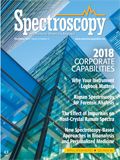Alluxa, Inc.
Company Description
Alluxa offers and manufactures high-performance optical thin films that are used in wide ranging applications including life sciences, research, semiconductor, and LIDAR. All of Alluxa's thin-film optical filters and mirrors are hard-coated using a proprietary plasma deposition process on equipment that was designed and built by our team. This allows us to repeatably produce the same high-performance optical thin films in all of our coating chambers.

Alluxa is an ISO 9001:2008 certified, ITAR registered, optical coating manufacturer located in Santa Rosa, California. Founded in 2007 by a team of thin-film deposition veterans, Alluxa's core team brings together decades of expertise and diverse backgrounds in deposition, automation, metrology, and optics.
Chief Spectroscopic Techniques Supported
- We support all chief spectroscopic techniques
Markets Served
We serve a wide range of markets including: Aerospace, astronomy, automotive, biotechnology, chemical technology, communications, environmental monitoring and sensing, forensic science, imaging, inspection and identification, lighting, machine vision, research, medical and biomedical, microscopy, military, photonics manufacturing, remote sensing, LIDAR, and spectroscopy.
Major Products/Services
- Ultra Narrow Bandpass Filters
- Ultra Series Thin Films
- Soft Coating Replacement Filters
- Custom & OEM Filters
Facility
Santa Rosa, California
Alluxa, Inc.
3660 N Laughlin Rd.
Santa Rosa, CA 95403
TELEPHONE
1 (855) 4ALLUXA
FAX
(707) 284-1371
E-MAILino@alluxa.com
WEB SITEwww.alluxa.com
NUMBER OF EMPLOYEES
USA: 65
YEAR FOUNDED
2007

LIBS Illuminates the Hidden Health Risks of Indoor Welding and Soldering
April 23rd 2025A new dual-spectroscopy approach reveals real-time pollution threats in indoor workspaces. Chinese researchers have pioneered the use of laser-induced breakdown spectroscopy (LIBS) and aerosol mass spectrometry to uncover and monitor harmful heavy metal and dust emissions from soldering and welding in real-time. These complementary tools offer a fast, accurate means to evaluate air quality threats in industrial and indoor environments—where people spend most of their time.
NIR Spectroscopy Explored as Sustainable Approach to Detecting Bovine Mastitis
April 23rd 2025A new study published in Applied Food Research demonstrates that near-infrared spectroscopy (NIRS) can effectively detect subclinical bovine mastitis in milk, offering a fast, non-invasive method to guide targeted antibiotic treatment and support sustainable dairy practices.
Smarter Sensors, Cleaner Earth Using AI and IoT for Pollution Monitoring
April 22nd 2025A global research team has detailed how smart sensors, artificial intelligence (AI), machine learning, and Internet of Things (IoT) technologies are transforming the detection and management of environmental pollutants. Their comprehensive review highlights how spectroscopy and sensor networks are now key tools in real-time pollution tracking.